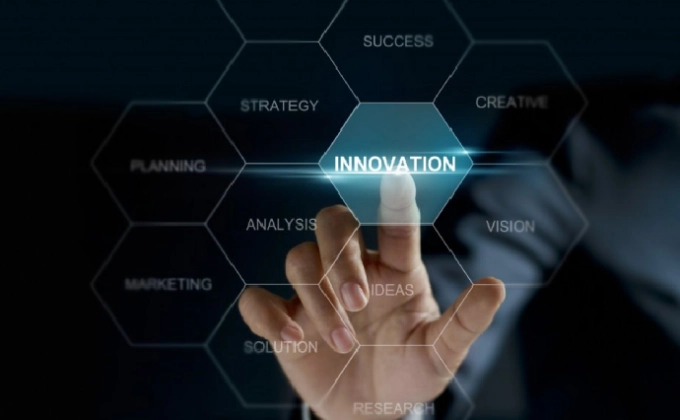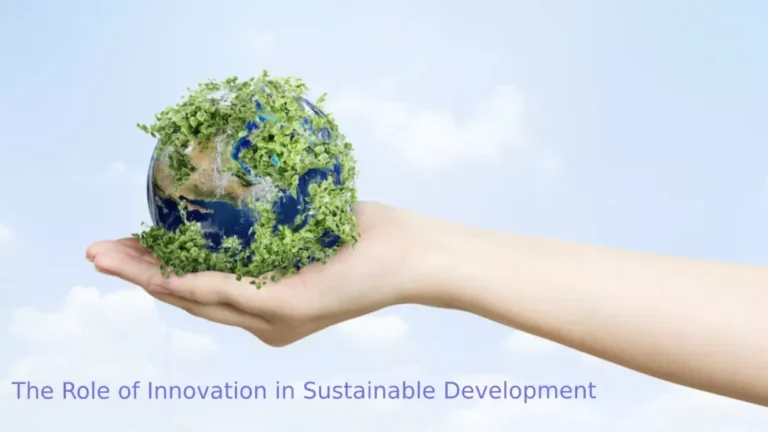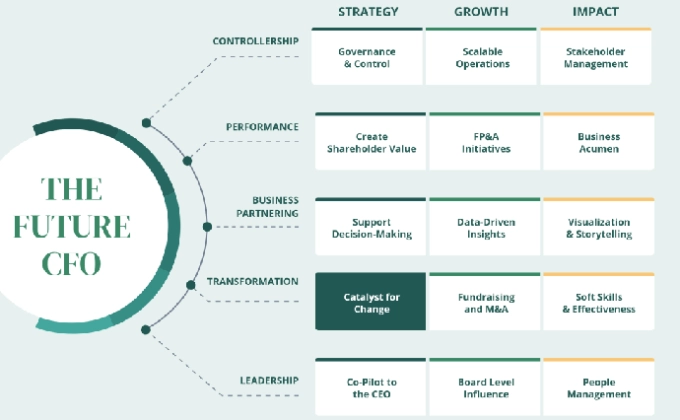Future Innovation: Shaping Tomorrow’s World Introduction
Future innovation is the driving force behind the rapid changes we see in our world today. From the latest advancements in technology to breakthroughs in medicine and renewable energy, innovation is transforming the way we live, work, and interact. As we look forward to what the future holds, it is clear that these innovations will play a crucial role in shaping our society and solving many of the challenges we face today. Understanding the potential is essential for everyone, as it affects every industry and aspect of our lives.
The Role of Technology in Future Innovation
Technology is at the heart of future innovation. With every new invention, we move one step closer to solving complex problems. Whether it’s artificial intelligence (AI), robotics, or virtual reality (VR), these technologies are opening doors to possibilities we couldn’t have imagined a decade ago. For example, AI has the potential to automate tasks that once required human input, while robotics can perform dangerous jobs, keeping people out of harm’s way.
The Impact of AI on Future Technology
Artificial intelligence is a major player with AI, machines can learn from data and make decisions without human intervention. This means faster and more accurate predictions, whether in healthcare diagnostics, financial forecasting, or even customer service. As AI continues to evolve, it will create new industries and job opportunities, making it a key driver of economic growth.
How Robotics Contribute to Future Innovation
Robotics is another key element. Robots are now being used in industries ranging from manufacturing to healthcare. In factories, robots can assemble products with precision and speed. In hospitals, robotic surgery is becoming more common, allowing for less invasive procedures and quicker recovery times. With constant improvements, robotics will continue to play a significant role in transforming the future.
Innovation in Renewable Energy: The Future of Clean Power
Why Renewable Energy is Essential for Future Technology
As the world moves toward cleaner and more sustainable energy sources, renewable energy is becoming an essential part. Solar, wind, and hydroelectric power are leading the charge in reducing our dependence on fossil fuels. These technologies are not only helping to combat climate change but are also creating new job opportunities in the energy sector.
Solar Energy and Future Innovation
Solar energy has come a long way in recent years. Advances in solar panel technology have made it more efficient and affordable, making it accessible to more people. As future innovation continues, we can expect to see even more improvements, such as solar panels that can generate power in low; light conditions or store energy for later use.
The Role of Wind Power in Future Technology
Wind power is another area where is making a big difference. Offshore wind farms are becoming more common, and the technology behind wind turbines is constantly improving. These advances allow for more energy production with less environmental impact, making wind power a key player in the renewable energy landscape.
Healthcare and Future Innovation: Saving Lives with Technology
How Future Innovation is Revolutionizing Healthcare
Healthcare is one of the most important areas where future Technology is making a significant impact. From telemedicine to advanced diagnostic tools, technology is improving the way we deliver and receive medical care. These innovations are not only making healthcare more accessible but are also improving patient outcomes and reducing costs.
The Role of Telemedicine in Future Innovation
Telemedicine is a perfect example of how future innovation is changing healthcare. With telemedicine, patients can receive medical care from the comfort of their own homes. This is especially important for people living in rural areas or those with limited mobility. As technology improves, we can expect telemedicine to become even more widespread, providing high, quality care to even more people.
Future Innovation in Medical Devices
Medical devices are another area where is making a big difference. From wearable health trackers to advanced surgical tools, these devices are helping doctors diagnose and treat patients more effectively. For example, wearable devices can monitor vital signs in real time, allowing doctors to catch potential health issues before they become serious.
The Role of Education in Future Innovation
How Education Supports Future Innovation
Education is the foundation of future innovation. Without a well-educated workforce, it would be impossible to develop new technologies or solve complex problems. That’s why it’s important to invest in education and ensure that students have access to the tools and resources they need to succeed.
Future Innovation in Online Learning
Online learning is a perfect example of how education is evolving with future innovation. With online platforms, students can learn from anywhere in the world, making education more accessible than ever before. As technology continues to improve, we can expect online learning to become even more interactive and engaging, providing students with a better learning experience.
The Importance of STEM Education in Future Innovation
STEM (science, technology, engineering, and math) education is crucial for future innovation. These fields are at the heart of technological advancements, and having a strong foundation in STEM can open up many career opportunities. By encouraging more students to pursue STEM education, we can ensure that the next generation of innovators has the skills they need to succeed.
Future Innovation in Transportation: Moving Forward
The Impact of Future Innovation on Transportation
Transportation is another area where future innovation is making a big impact. From electric vehicles to self-driving cars, technology is changing the way we move from place to place. These innovations are not only making transportation more efficient but are also helping to reduce our carbon footprint.
The Future of Electric Vehicles
Electric vehicles (EVs) are a key part of future innovation in transportation. With advances in battery technology, EVs are becoming more affordable and practical for everyday use. In the future, we can expect to see even more improvements in range and charging times, making EVs a viable option for more people.
How Autonomous Vehicles Fit into Future Innovation
Autonomous vehicles, or self, driving cars, are another exciting area of future innovation. These vehicles use AI and sensors to navigate the roads without human input. While there are still challenges to overcome, such as safety and regulatory issues, the potential for self-driving cars is enormous. They could reduce accidents, ease traffic congestion, and provide mobility for people who are unable to drive.
Future Innovation and Its Ethical Considerations
The Importance of Ethics in Future Innovation
While future brings many benefits, it also raises important ethical questions. As we develop new technologies, we must ensure that they are used responsibly and ethically. This means considering the potential consequences of innovation and making sure that it benefits everyone, not just a select few.
The Role of Regulation in Future Innovation
Regulation is an important tool for ensuring that used ethically. Governments and organizations must work together to create policies that protect people’s rights and ensure that new technologies are safe. By setting clear guidelines, we can encourage innovation while also safeguarding the public.

Future Innovation
The Changing World of Future Innovation
Technology is evolving faster than ever before, which makes our lives easier and more exciting. From self-driving cars to robots helping in hospitals, new ideas are shaping the future. But what does this mean for students like you? It means a world full of endless possibilities! In this section, we will explore how future innovation impacts everyday life and why it’s so important to learn about these advancements.
Technology Leading the Way
Every day, scientists and engineers work on inventions that change how we live, work, and communicate. One of the most exciting innovations is Artificial Intelligence (AI). AI helps computers make smart decisions on their own. For example, AI can help doctors find diseases early, making treatment easier. Another example is smart homes, where everything from lights to security systems is controlled through voice commands or smartphones. These technologies may sound futuristic, but they are already becoming part of our daily lives.
Future Innovation in Education
In the future, schools will look very different because of innovation. Virtual Reality (VR) is one of the latest tools that will change the way we learn. Imagine putting on a headset and traveling through ancient Egypt, or even exploring outer space, all from your classroom! This type of learning makes lessons more interactive and fun. Additionally, online learning platforms make education accessible to everyone, no matter where they live. This is an exciting time for students, as creates new opportunities for learning.
Healthcare Advancements
Innovation doesn’t just stop at technology and education. The healthcare field is also benefiting from incredible advancements. Scientists are developing new ways to treat diseases, making healthcare more effective. For example, 3D printing allows doctors to create custom-made body parts for patients, helping people recover faster. Additionally, robotic surgery enables doctors to perform surgeries with extreme precision. With these innovations, people can live healthier and longer lives.
The Impact on the Environment
While future innovation brings exciting changes, it also offers solutions to environmental problems. For example, solar panels and wind turbines generate clean energy, helping reduce pollution. Electric cars are becoming more popular, too, as they help lower harmful emissions. Moreover, scientists are working on ways to clean our oceans and preserve wildlife. These innovations not only make our planet cleaner but also protect it for future generations.
The Importance of Learning About Innovation
As future innovation becomes more important in our daily lives, learning about it is essential. Being familiar with new technologies and ideas will help you succeed in the future. Whether you want to be an engineer, a doctor, or a scientist, understanding innovation will give you the tools to make a difference. Plus, it’s fascinating to discover how these advancements are changing the world around us.
FAQ
Q: What is future innovation?
Future innovation refers to new and emerging technologies and ideas that are expected to shape our future, improving industries and society.
Q: How does AI contribute to future innovation?
AI contributes by automating tasks, improving decision-making, and opening up new opportunities in various sectors, from healthcare to finance.
Q: Why is renewable energy important for future innovation?
Renewable energy is crucial for reducing our reliance on fossil fuels, combating climate change, and creating sustainable energy solutions for the future.
Q: What role does education play in future innovation?
Education provides the foundation for future innovation by equipping students with the knowledge and skills needed to develop new technologies.
Q: How are electric vehicles part of future innovation?
Electric vehicles are part of future innovation by offering a more sustainable mode of transportation, reducing emissions, and lowering dependence on fossil fuels.
Conclusion
Future innovation, will continue to shape every aspect of our lives, pushing boundaries and redefining industries. As technology advances at a rapid pace, we can expect groundbreaking developments in fields like artificial intelligence, biotechnology, and renewable energy. These innovations will not only enhance the efficiency of current systems but also create new opportunities for growth and sustainability. As a result, staying informed and adaptable will be crucial for individuals and businesses alike.
Furthermore, as we look ahead, it is important to recognize that brings both challenges and opportunities. While advancements can improve quality of life and solve pressing global issues, they also demand ethical considerations and responsible implementation. Therefore, collaboration between governments, industries, and individuals will be essential in ensuring that these innovations are harnessed for the greater good. Ultimately, embracing the open minds will pave the way for a brighter, more inclusive tomorrow.




